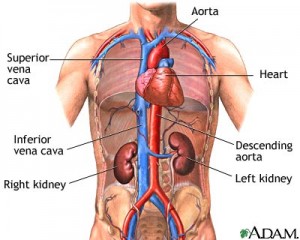I have often found in this wide world, that many people don’t understand the Mormon way of living. This is evident based just on the question, “what can’t Mormons do?” as if restrictions on behavior is something strange. Well, first off, it isn’t to me. Not very much. It isn’t strange to me that I don’t smoke, drink, gamble, cheat, or steal and that I do go to church, pay tithing, read scriptures, stay chaste and so forth. That is the standard by which I live. Everybody has a standard, or guidelines by which they make their decisions. So then, why did I choose my standard? Let me explain it to you.
First and foremost, God has a standard. He has a way of living that He wants for us. He has revealed, and continues to reveal, that way of living to prophets throughout the ages. Through Moses, He instructed the children of Israel to obey a strict set of laws. Jesus Christ instructed the Jews a different (and better) way of living that relied more on developing a good heart that dictates good actions. I don’t doubt that that same Being inspired Buddha, Mohammad or Confucius to teach their respective peoples a better way of living.
Here’s the important part: God does this so that His own children might be happy. That’s right; God gives rules for you to be happy. If He can persuade His children to lift their way of living to a higher level, even on just a single point, it brings Him joy because they are living up to a standard that is naturally better. It isn’t so much that God will punish those who break commandments; the commandments are there to prevent actions that cause damage. If I do action “A” then “B” will be a result. If “B” is good, then God wishes us to do “A,” otherwise He must forbid it.
There are several problems people see with this standard. First, they don’t see beneficial results from supposedly good actions, nor do they see bad results from bad actions. Then they wonder why the standards are there in the first place. Patience. That’s why we believe in personal revelation. We can ask our Heavenly Father if such a thing is for us. After receiving an answer, we trust in that answer and believe that someday, somehow, that trust will be for our good.
Second, many people find themselves not living in harmony with their beliefs. That is, everybody eventually finds themselves where their actions don’t line up with what they know they should be doing. They then have a choice. They could change their actions, or change their beliefs. Either will relieve the situation and not doing either will always result in misery. You would be the most wretched person if you constantly wish to be unchaste while acting in celibacy. Or you could be miserable believing that you ought not to drink alcohol while sitting at the bar getting drunk. The key is to alter the action that is keeping us from God instead giving up His standard.
Third, when we make a poor decision, we naturally are loathe to accept the consequences for that action. We would like to get the benefit of something we didn’t do and avoid the penalty for something we did do. It is true that Christ’s atonement allows us to repent and avoid the dire consequences of our actions, most especially being separated from God, but it is definitely easier to prevent making a mess of our lives than to work through the repentance process. The time spent destroying spirituality could be spent building it up instead. God’s standard helps us reap blessings with the time we have and not to spend it in trials and pain.
So in light of all this, it is imperative that each of us keep to the standard of God and stick to it. The Atonement of Jesus Christ is there for us in our moments of weakness and to pick us up at our worst moments, if we are just willing to accept help. It will be uncomfortable, there is no doubt there, but growth means growing pains. The path of least resistance is quite comfortable, but doesn’t lead to the desired end. We desire a better end, a more excellent way and one that brings a life of real joy and satisfaction. That is why we do the things we do and try our best to live according to God’s standard.

